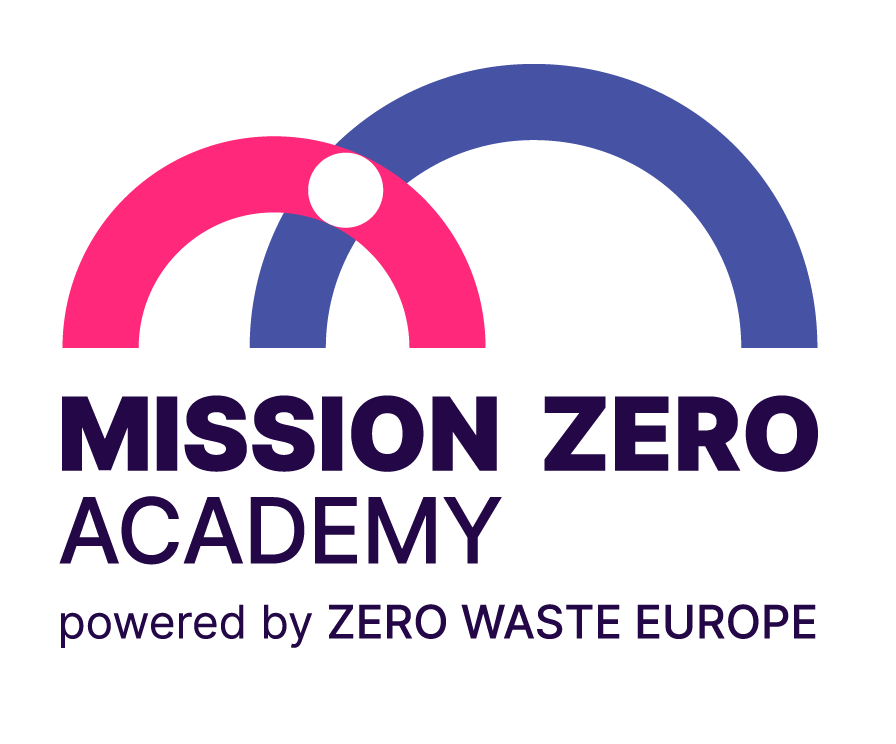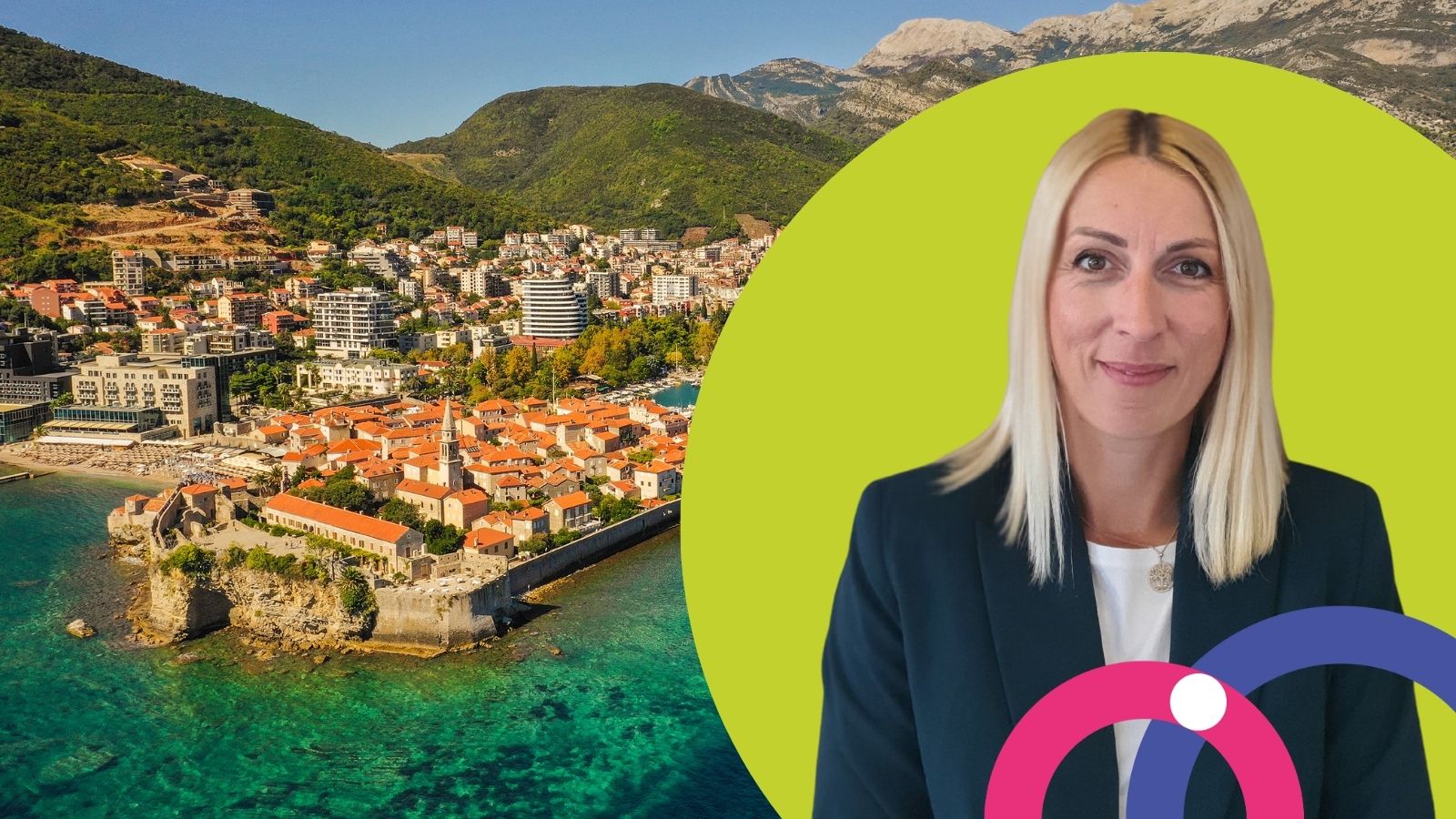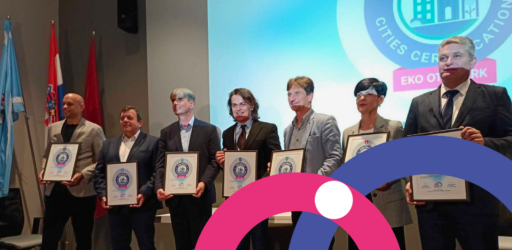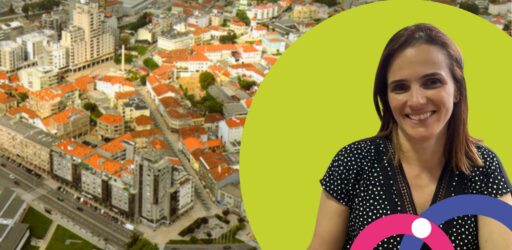Nestled on Montenegro’s stunning coastline, just 16 kilometres from Tivat, stands The Chedi Luštica Bay Hotel. A member of The Leading Hotels of The World, a paradise with 111 luxurious rooms, two stellar restaurants, bars, a private beach, and pools that feel like they touch the sky.
But there is more to this place than the view. The Hotel Chedi is on a mission to take their sustainability rating to the next level. Pursuing a Green Key certification, the hotel already had numerous commitments and initiatives in place to reduce their impact, including soap recycling, water bottle sterilisation, food waste donations and more. In the Montenegrin context, a particular challenge confronted the establishment: the lack of well-developed waste separation and collection systems. Dealing with waste in Montenegro can be like a puzzle, with some pieces still missing.
Right on time, MiZA launched their Zero Waste Business Certification. Hotel Chedi joined the journey and together, set higher goals for sustainability. Their Sustainability Manager, Milica evaluated a few certification options, and got in touch with Zero Waste Montenegro as it was particularly focused on waste management, as they wanted to go further with their waste reduction. Adding a few layers of complexity, operating as a distinguished 5-star Luxury Hotel particular hygiene standards (LQA Standards), the integration of foreign products and meeting customers’ high expectations had to be observed.
Join us in this series of interviews, as we dive into Hotel Chedi journey towards their certification, sitting down with both their Sustainability Manager and MiZA mentors as they navigate and drive change together to make Hotel Chedi the 1st Zero Waste Certified Business in Montenegro. In this third part of our series, we sit down with Milica Jankovic, Sustainability Director at The Chedi.
To start our interview, Milica, please tell us a bit about yourself and your background.
I’m Milica, the Sustainability Director at The Chedi in Luštica Bay. I am from Budva, raised by a family where hospitality is in our DNA. My love affair with hospitality ignited in my early years, and for over two decades, I’ve poured my heart and soul into perfecting this craft. As we journey through life, we often question our choices. But if I could turn back time, I would choose hospitality and my family all over again.
My story began in a hotel in Budva, and I’ve worn many hats since then. I started as a local guide, worked as a sales assistant, then took a little detour to law school while working part-time in another hotel. I’ve always been eager to seize opportunities and explore diverse roles. My journey of curiously taking on different parts eventually led me to become a General Manager at a small hotel for three exciting years.
But the plot twist came when the management team of another hotel I worked at suggested I lead the housekeeping team. They saw potential in me to improve and reorganize the department. I took up the challenge and realized it was like second nature. I must admit that it’s a challenging department with a high turnover rate, but every year, I’ve led and trained diverse groups of people with one aim: to empower my team through skills and knowledge transfer.
My thirst for knowledge knows no bounds, so about a year and a half ago, I decided with our General Manager to learn more and expand my impact. Sustainability in businesses caught my attention. I studied online at Cornell University, but the more information I acquired, the more I realized that although the terms used around sustainability seemed unheard of in Montenegro, the traditional way hotels operated already embodied those principles. By learning something new, I was reminded of the old ways. Since then, through engagements with artists, designers, and key players in different sectors, I’ve been looking for ways to replicate what other countries are doing, be inspired by them, and use what we already have to preserve and positively contribute to Montenegro, my home.
What inspired the Hotel’s decision to pursue a Zero Waste Certification?
After learning more and recognizing the need for urgent action, I sat with the General Manager and proposed several options: Zero Waste Business Certification, Earth Check, and Green Key certifications. We decided that we would pursue all three of them. We then both agreed that this plan was the way forward, and that’s how our journey began. It was essential to avoid taking this journey alone; we ought to legitimize each step and work with other organizations for a more meaningful impact.
As it turned out, this decision was spot on. Each organization has guided our steps and helped us make measurable changes. We achieved the Green Key certification first. Now, we’re on the On the Road to Zero Waste Certification, and just a couple of days ago, we achieved a silver certification level by EarthCheck, the world’s leading scientific benchmarking certification and advisory group for the travel and tourism sector based in Australia.
How do you see the Hotel’s role in driving change and inspiring other establishments to follow a similar sustainable path?
Our efforts are not just about us but are also about inspiring other hotels in the region to embark on the same journey. We aim to be the first domino that falls and will lead to change nationally.
Our marketing team promotes our initiatives to set an example and lead the way. We’re open to assisting anyone in the region who is interested in this topic, offering support and guidance to help them take their first step. We aim to serve as a beacon of sustainability and contribute to our community’s progress. We understand that only by collaborating can we have a more substantial influence on decision-makers in the country.
We have amplified our efforts from our property to the whole destination, which resulted from our parent companies’ growing interest in our initiatives. We share our work and results, and it’s heartening to see that the word is spreading. Together, we’re truly making a meaningful change.
How has MiZA Mentors’ ongoing support and guidance played a role in navigating the Hotel’s journey so far?
When we crafted our Zero Waste plan, our mentors played a crucial role in helping us figure out where to focus our efforts. One of the hurdles we faced was that some folks needed help to grasp the ‘what’ and ‘why’ behind our sustainability mission. It can make things tricky, especially when change starts at the bottom.
So, I had some in-depth chats with Marina and Alexandra, and together, we devised creative ways to tackle the challenges unique to our area. See, here in Montenegro, it’s not just the Ministry of Ecology calling the shots; each town and its mayor have their own ideas and waste systems. Take, for instance, the two cities closest to our Hotel, only 20 kilometers away, while only one has a working recycling system.
If the mentors ever get to sit down with local government representatives, I’d love to join in and speak up for our industry and the locals. It’s high time we put the recycling issue on their radar.
Can you share specific examples where the mentor’s expertise helped overcome challenges and implement sustainable practice effectively?
Speaking about the Zero Waste Business Certification – it’s relatively new, and we gladly signed up to be MiZA’s first project in Montenegro, particularly within the luxury hospitality sector. Certification for a luxury property comes with unique challenges, as we need to cater to specific high-quality guest expectations and meet the general Hotel’s criteria for accreditation. I mediated between our mentors and management, working out what we could realistically achieve and how.
For example, we placed labels on the four bins already in our guest rooms to encourage in-house segregation instead of having new segregation bins in corridors, which was the first proposal. We must tread lightly in a luxury hotel when communicating with guests. After all, they’re here to relax. Some may be environmentally conscious during their stay, while others want a carefree getaway. So, we had to strike a balance – being present but also giving them space to relax from their daily routine. We want to make guests feel like they’re part of our Zero Waste journey without overwhelming them.
One of the standout moments was when our mentors introduced us to a local winery in Drušići. This led to the initiative BokaNova, an intersectoral project that aims to give disposed glass in Montenegro a new life. Our glass waste has now become a valuable resource for small local producers. I’m hopeful that soon, none of our glass bottles will end up in a landfill; they all find a second life.
Effective communication and bringing together different sectors are critical to a successful transition. Our mentors’ support motivated us to reach out and establish these new ties. Before their involvement, I sat in my office pondering what to do with all those glass bottles. Now, we’ve started building a network of changemakers in the region.
How has the Hotel’s commitment to sustainability positively impacted its reputation among guests, partners, and the local community?
It’s too early to spot major shifts in guest behaviour, but we’ve had a few comments on social media. We’re closely monitoring how guests react and expect to hear more in the coming months.
What’s remarkable is that sustainability certifications and ratings are starting to make a real difference in how guests perceive us. Nowadays, people will rather choose to stay at a sustainable hotel that is intentional and eco-conscious in their operations.
The impressive thing is that our sales department has seen some quick reactions to our sustainability efforts. Booking platforms and agencies from the US, UK, and Europe are incredibly excited about our zero-waste plan. Guests from these regions care about having an environmentally friendly stay.
Within our local community, we’re getting lots of media attention. Reporters are eager to see our solutions in action, and we’re getting many requests for hotel tours. We didn’t expect to get this much attention immediately when starting this journey. It’s been a pleasant surprise, which shows that our aim to inspire others is coming to life!
How does the Hotel effectively communicate its initiatives to stakeholders and the public, fostering a positive brand image?
We are finding a way of being visible and educating our audience about Zero Waste initiatives while avoiding info-loading. We want to do more and say less about our changes but also ensure that our local community knows our doors are open for collaboration. After all, if we can get only a few more hotels to join us on this journey, we can make an even more significant impact.
What advice would you give to other luxury hotels considering zero-waste initiatives and certifications?
Start yesterday!
Keeping up with the latest trends and latest innovations is vital. But sometimes, we must look back to move forward. In the past, resources were scarce, so preservation was the standard. This means that what we are trying to do now can be inspired by what was done before. Here in Montenegro, sourcing eco-labeled materials can be challenging since they must be imported. We should ask ourselves, how did the Hotel previously manage, and how did they reuse materials? Thinking outside the box and simplifying is crucial when developing a zero waste plan that suits your business.
The Hotel is now officially “On the Road”; what are the next steps of the transition you look forward to most?
On a personal note, I’m excited about expanding our collaborations and inspiring change throughout the country.
Read more about the incredible journey of the Hotel Chedi in our part 1 interview with Marina Tomovic, here and in our part 2 interview with Alexandra Aubertin, here





